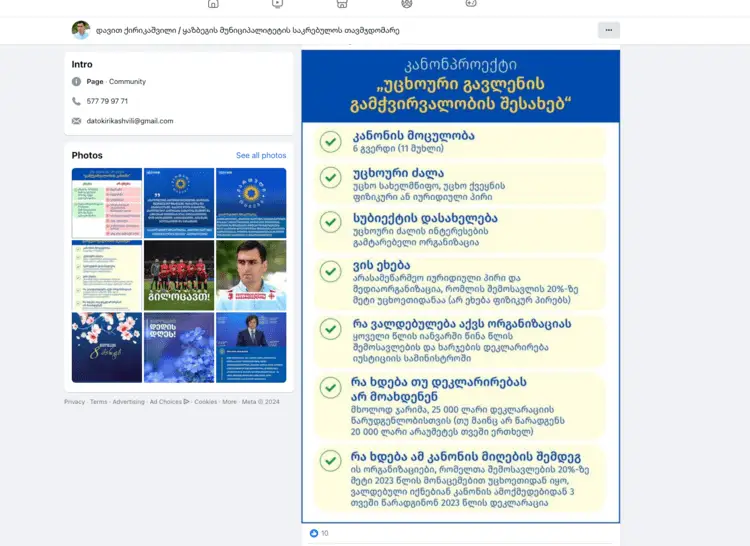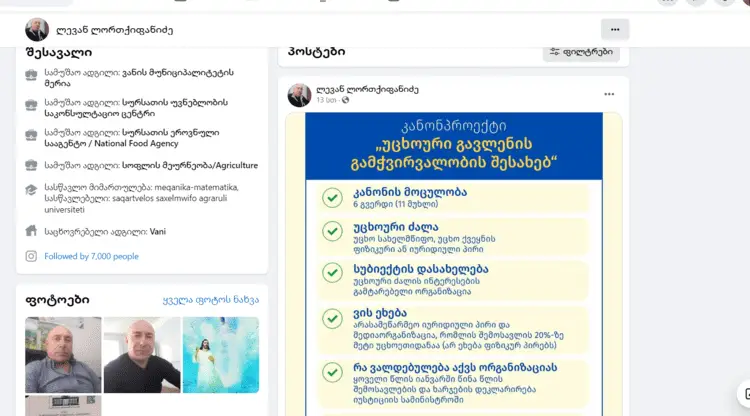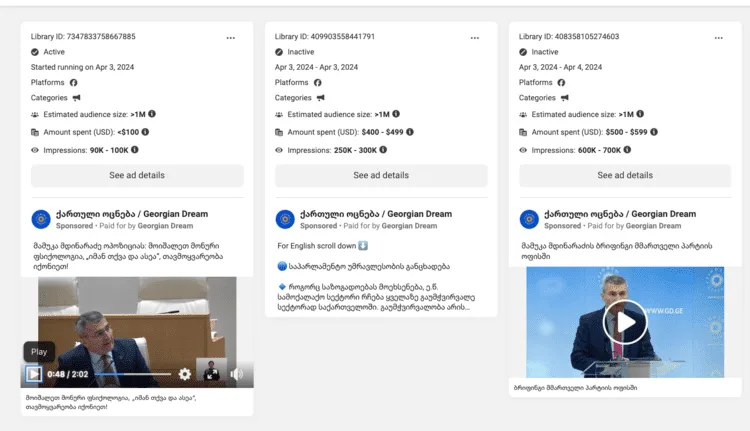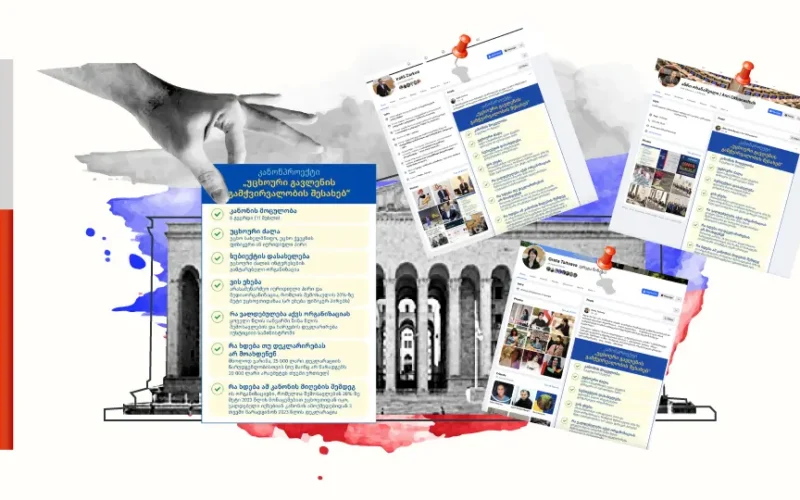“Georgian Dream” announced on April 3rd, revealing its intention to reintroduce the “Russian law” in Parliament. However, the ruling party had already begun shaping public opinion and disclosing its plans as early as April 1st. The initiative was initially voiced by Mamuka Mdinaradze, with others subsequently joining in a coordinated effort, including the TV channels “Postv” and “Imedi”.
Following Mdinaradze’s official announcement on April 3rd, public service employees swiftly took to social media platforms within the hour. Individuals employed by the state and funded by the state budget began disseminating information about the proposed bill.
Public service employees from various regions consistently shared a particular photo. Some posted it on their profiles, while others shared it from elsewhere. Included among the sharers were employees from municipal town halls, councils, and NNLPs.
Presented here is a collage compiled from the Facebook pages of 230 individuals employed within the governments of 58 cities in Georgia. These individuals were directed to share the post.
We interviewed five individuals who shared the photo: the deputy chairman of the Senaki City Council, the deputy mayor of Kharagauli, the director of the Tourism Development and Monument Protection Center of Tsageri Municipality, the chairman of the “Georgian Dream” in the Kazbegi Municipality Council, and the adviser of the State Trustee of Samegrelo-Zemo Svaneti.







All five individuals uploaded the photo to their respective profiles. They provided a uniform response, stating that they encountered the photo on social media and, aligning with their views, downloaded and subsequently uploaded it.
All five repeat the same narrative:
“No one has sent it to me; on the contrary, based on my position, when it spread on the Internet, I took it and posted it because I agree. I cannot speak for others, but I will openly state my position,” said Levan Uchaneishvili, deputy chairman of the Senaki City Council.
“Nobody sent it to me… I uploaded it with my awareness, understanding, and position. I came across it in the social space, I liked it, and I completely share this position, so I uploaded it to my page voluntarily,” explained Varlam Chipashvili, Deputy Mayor of Kharagauli.
“I saw this photo uploaded in many places and took it from one of them of my own will. I cannot remember which page I got it from. It just caught my eye; I looked at it on various Facebook pages and I agree with it, and also believe that transparency is very important,” stated Lana Kopaliani, director of the Tourism Center of Tsageri City Hall.
“There are plenty of such posts on social networks; I liked them, so I shared the post and agree with it,” mentioned Davit Gvishiani, adviser to the State Trustee of Samegrelo-Zemo Svaneti.
“I saw it on my Facebook timeline and shared it from there so that my friends could understand the law more transparently and in simple language. It was MP Dito Samkharadze, on whose timeline I saw it and shared it from there. I downloaded it and posted it on my Instagram story, Twitter, and my page. I understand what is your inquiry, but the idea of a directive from above or a message box is out of the question,” clarified Ucha Khutsishvili, Chairman of the “Georgian Dream” faction in the Kazbegi Municipality Council.
It became evident to Facebook users that such instructions were given “from above.” Several users commented under the posts of public service employees, indicating that they were instructed to share this material.
This coordinated behavior extends to the promoted posts of “Georgian Dream” and government Facebook pages.
For instance, $800 has been spent to advertise the posts published on Mamuka Mdinaradze’s official page. The official page of “Georgian Dream” has published three posts about the “Russian Law” and has spent $1,200 so far. Irakli Kobakhidze’s page has published one post and spent $300; The Government of Georgia’s page also has one post advertised for $100. The banner on the official page of the Speaker of the Parliament, Shalva Papuashvili, which was actively shared by public service employees, is advertised for $100.




We are continuing to develop this material and will update it accordingly.










